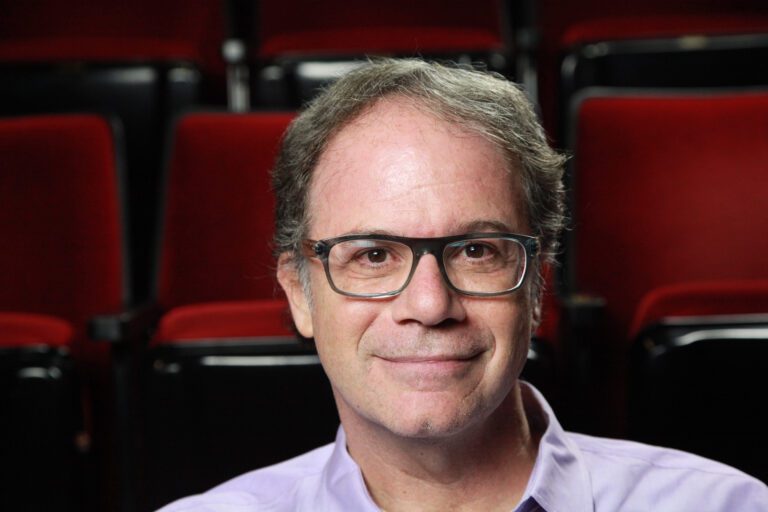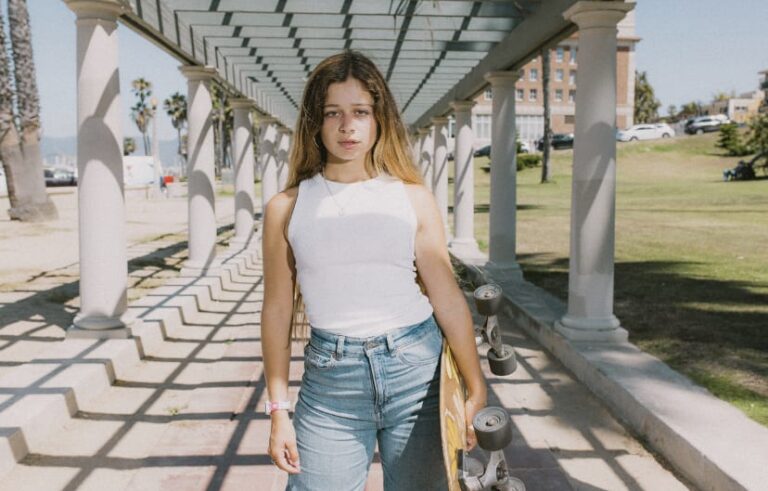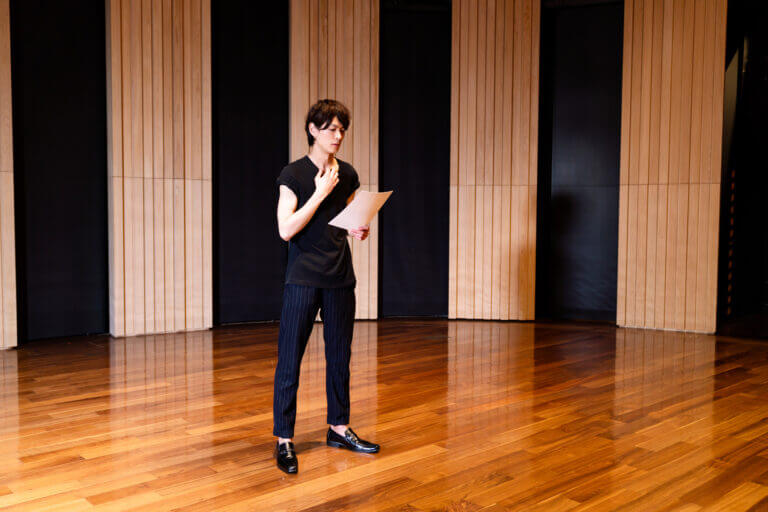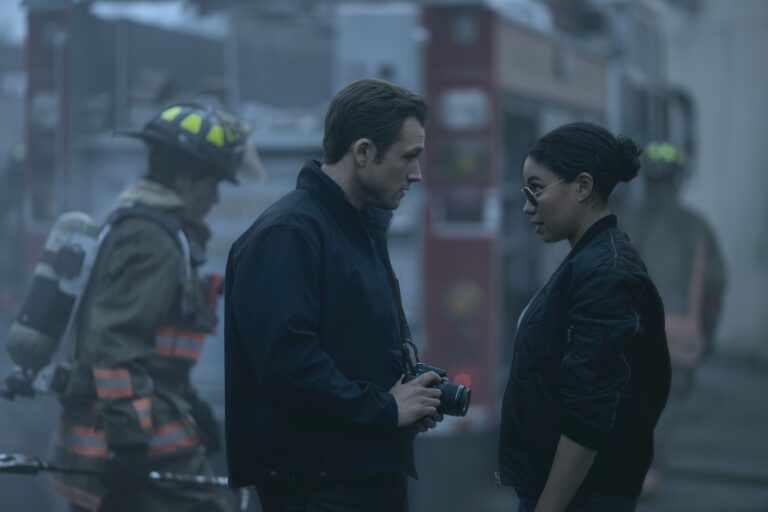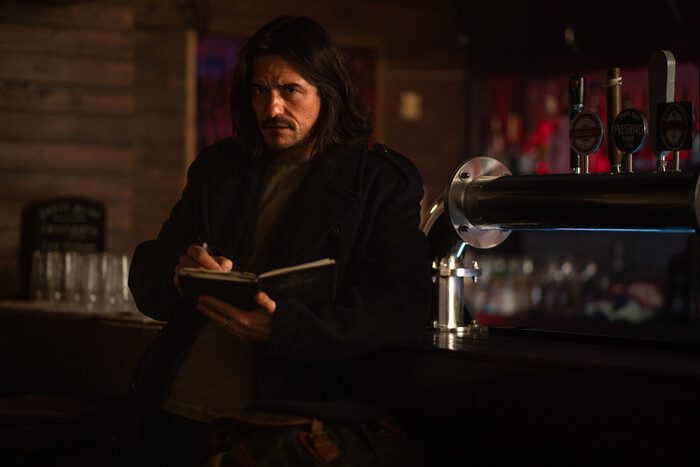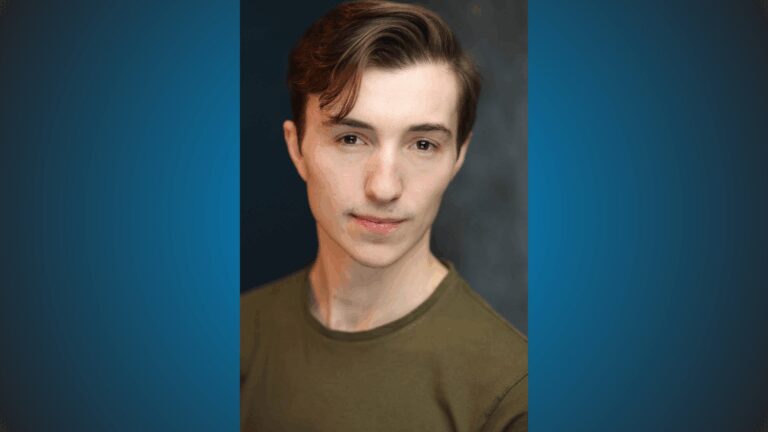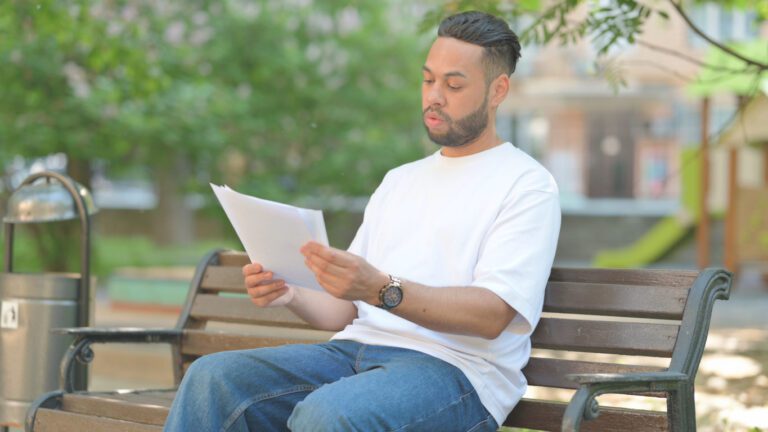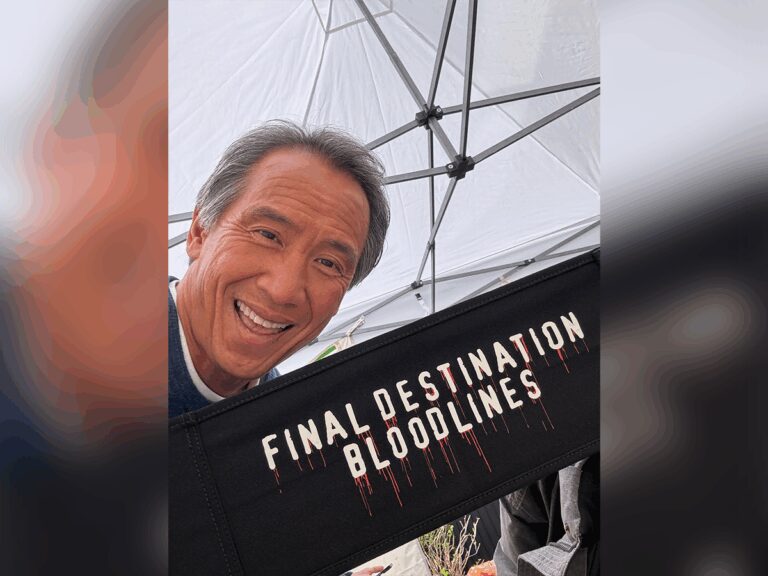If you’re a fan of modern British television, you’ve almost certainly seen David Shields in action. He’s appeared in all the modern UK classics, The Crown, Black Mirror and Doctor Who. You can also see him in the current release, Freud’s Last Session, opposite two-time Oscar winner Anthony Hopkins.
Although his work on those projects has been good, it’s his latest that should make him a star. The British actor stars as U.S. Army Air Force Major Everett Blakely in Apple TV+’s new limited series Masters of the Air, from the producers of Band of Brothers and The Pacific. The story follows the 100th Bomb Group as it does battle in the skies over Europe during World War II.
Episodes are now streaming on the service. Shields spoke to us from his home in London.
How did you start acting?
I started acting from a very young age at school. I played the part of Joseph in the Nativity Play. That was my big break. I was eight years old. I thought, until relatively recently, it was because the teachers had spotted some rare talent. My mother burst my bubble recently when she told me, “Oh, no, it was just because you’re the youngest of five, and the teachers were sort of saying goodbye to me. It was really nothing to do with you.”
(Laughs) That’s what gave me the bug early on and gave me the confidence to do it. So I just did theater the whole way through school, and then continued in university and got picked up by my agent. I went into film and television and then I trained after that.
That’s interesting, that you started working and then went back and trained. It’s usually the other way around.
It’s unconventional, for sure. I was working in television and film and I felt like I had slightly jumped the gun. I wanted to focus on some elements of technique, especially with regards to theater, that I wasn’t going to learn by doing these television parts. That’s why I went and did a little one-year master’s. I wanted to dedicate a good year to trying to improve what I felt I needed to improve.
I recently was talking to another actor who discussed when he realized the difference between performing and acting. It sounds like you had a very similar realization.
It’s true. I mean, people say “Why do you get into it?” Similar to him, it’s probably that buzz, that thrill of performance you only really get from a live audience. That’s what got me into it and sustained my interest, but I never really knew the foundational knowledge. There are certain building blocks I felt I wasn’t going to learn by myself.
Can you tell the difference? The before and after?
I think I quite arrogantly thought before I went there that I had great range. That I could do anything. Then it was only having been there that I realized the limitations that I was putting on myself. I remember, for instance, that just through improvisational things, I was always tending to be more dominant and more high status in whatever role that was thrown at me. That was always my take, always the color I was putting onto it. And then having it pointed out by a teacher, who asked “Why not approach from a low-status position? Allow yourself to be more vulnerable.”
One could argue that showing vulnerability is more interesting.
Definitely. I think being able to do both is what’s interesting. I think those people we find most interesting in life are people that can move between those two things, especially with regards to humor. There’s always the kind of guy at the party who’s constantly gotta lie and he’s taking the piss out of this person, that person there, always putting people down. That’s funny to a point, but then gets a bit boring.
In the same way, that kind of guy that’s the very self-deprecating person inside the circle. Whereas the people that I think we describe as most charismatic, most funny, most whatever, they can play between those two levels. That’s hopefully what I gained from the process, learning the need to do that and then putting it into action.
One of the things I find fascinating about your career is that you’ve done the modern trifecta of British television: The Crown, Doctor Who and Black Mirror.
The Crown was early on in my career and it kind of clashed with my drama school, so it didn’t quite work out the way I wanted to. It was fun. I mean, you’ve got to remember back then, it was the biggest budget show ever in the UK. It was my first experience being on something of that size and with such a quality of writing. Everyone was just so good at what they did. It was an exciting first gig, with such a committed fan base.
I suppose it’s similar to Black Mirror and Doctor Who, where you have that feeling of just wanting to not put a foot wrong and disappoint those fans, but also not allowing yourself to become overawed by it.
From your perspective, it’s a job, regardless of the size and scope of it.
Right. And you just got to get in there and do it. Obviously, respect the people in the cast and the crew around you, but if you’re contributing too much to the material, it can put you in a bad position. You need to grasp it and take control of it, otherwise it can take control of you and you drown under it.
In Masters of the Air, you’re playing a real person in a World War II show from Steven Spielberg and Tom Hanks. Talk about having to focus on the job at hand.
Exactly. The scope and the scale [of the show], it was just so vast and the attention to detail was so great. I think what helped combat that for all of us was how much support we had for each other. There are a lot of guys for whom it was their first gig, and then obviously there are some older hands. The boot camp we had created cohesion and a support network, even down to the point of making sure to look out for each other’s uniforms and flight suits. Make sure everything was in order.
I would think that that would really create a tremendous esprit de corps.
It’s really important that we found that sort of camaraderie. We worked with Dale Dye, who instilled in us the need to find what he described as the “Crew Glue.” That which bound everyone together, especially those within your individual crews. It was, I think, one of the main driving factors that enabled them to go on these horrific missions. The guy sitting next to them. They couldn’t let that person down. It was absolutely essential that we found that, as you say, esprit de corps. It’s made easier by the fact that we were all a similar age and got on really well. Made it a lot more fun as well.
How much research were you able to do on Major Everett Blakely?
He’s not only in
Masters of the Air
, he’s also in [fellow squadron pilot] Harry Crosby’s book A Wing and a Prayer. He’s described in there as this very disciplined, skilled pilot, so I wanted that to come across, but also, he was a jocular guy and could have a good time. I wanted that to come across too.
Then there were also interviews, conducted by his son Jim, who I’ve actually met. I had his voice, and I had that to draw on as well. That’s the fun thing about playing historical characters. There’s a whole wealth of information and things to look at and take from.
I would think it would give you something to aspire to as well, that you really want to do justice to this real-life hero.
Oh my God, yeah. If anything was driven home to us, it was the fact that our job is to honor these guys. We wanted to make sure that we paid tribute to their selfless acts. You want to make sure that you do justice, and you honor them in the best way possible.
Casting directors use Casting Networks every day to discover people like you. Sign up or log in today to get one step closer to your next role.
You may also like:



